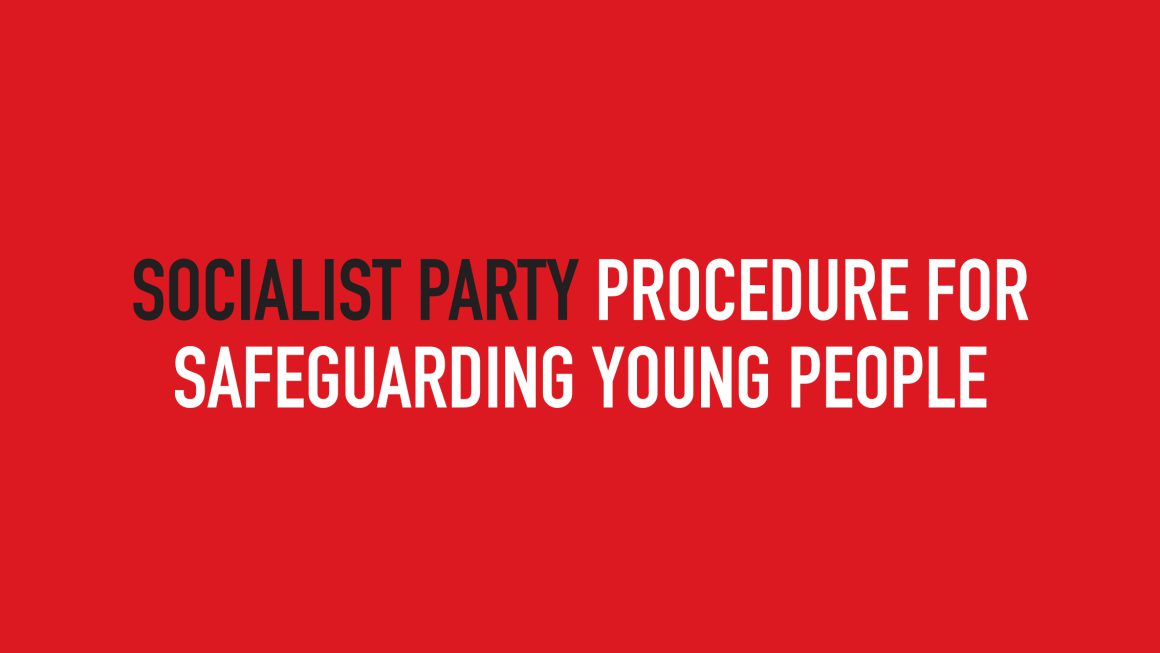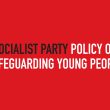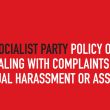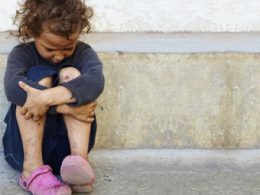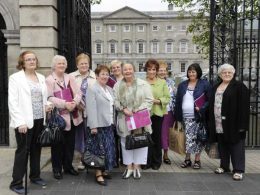Scope
This procedure must be read and applied in conjunction with the policy for safeguarding young people.
This procedure applies to all members of the party.
Definitions
“The party”, refers to the Socialist Party.
“Member(s)” refers to any member of the Socialist Party.
The term young person, for the purpose of this procedure refers to any member of the party who is under the age 18 and therefore considered a child under the respective regional legislation.
The term “authoritative member” is used throughout this document. Members are considered authoritative by virtue of;
- Their personal or professional experience and expertise;
- Their standing within the organisation as defined by the length of their membership, level of activity and holding, either contemporaneously or historically, elected positions with the party or trade union movement.
Members will not be considered “authoritative” in circumstances where any conflict of interest exists.
Definitions of official party positions are defined by the Socialist Party constitution.
Safeguarding
Safeguarding Children and Young People is more than child protection. Safeguarding begins with preventative activity which enables children and young people to grow up safely and securely in circumstances where their development and wellbeing is not adversely affected. It includes support to families and early intervention to meet the needs of children/young people and continues through to child protection, which refers specifically to the activity that is undertaken to protect individual children/young people who are suffering, or are likely to suffer harm.
See Appendix 1 for definitions of different types of abuse and neglect.
The Socialist Party’s responsibilities
The Party has a duty of care towards young people who are members or participate in our activities and meetings. We will therefore take any potential safeguarding concerns very seriously.
Any work or investigation must be conducted in a professional way, including making a record of the process. Recorded minutes of all meetings in relation to a formal investigation must be kept and agreed by the involved parties. All processes should be conducted as swiftly as possible.
The Party has a duty to ensure it complies with this procedure and the policy on safeguarding young people, to make all members aware of these documents and their responsibilities and to ensure the election of Safeguarding Officers as outlined below.
Responsibilities of members
All members have a responsibility to act in accordance with the policy on safeguarding of young people. All members are made aware that failure to act in this way will be taken seriously by the party and could result in an investigation which could lead to disciplinary action up to and including expulsion from the party. Members are also made aware that breaches of this policy may also result in reports being made to relevant state authorities.
If any member becomes aware of the signs and indicators of abuse, suspects, or is told that a young person is being, has been, or is likely to be abused or neglected, they must report this as quickly as possible. It is not the responsibility of members to determine whether abuse or neglect has taken place. Concerns should be reported to a Safeguarding Officer. Where this cannot be done in a timely manner concerns can be reported to:
- any party branch secretary;
- any member of the National Committee, National Executive Committee or Regional Executive Committee;
- any person who works full time for the party;
- Any of the Safeguarding Officers or any alternate Safeguarding Officer.
If a young person as defined by the policy on safeguarding has experienced harm or abuse they are encouraged to report this to any of the individuals named above.
When safeguarding concerns are brought to the attention of any of the above mentioned authoritative members they must make it clear at the start that they cannot guarantee confidentiality as they have a responsibility to share the information with the Safeguarding Officers.
Once concerns are received by any of the above mentioned individuals they must pass the information on to one of the Safeguarding Officers immediately. Should none of the Safeguarding Officers be contactable, the NEC should be informed. Any of the above mentioned individuals who receives a safeguarding concern must ensure this is passed on to a Safeguarding Officer within 24 hours.
It is the responsibility of all members to engage in safeguarding investigations if asked to do so by SGOs who are directly elected by conference for this role. Members are also asked to not engage in discussions about ongoing safeguarding investigations if they become aware of them in the interests of confidentiality and to ensure SGOs can complete investigations unhindered. The Party recognises that these issues can be complex and difficult. It is understandable if individuals who engage with this process at any level including as a potential witness may require emotional or other support. SGOs can be contacted for such support at any point and can offer resources, advice and information as required.
Safeguarding Officers
Safeguarding Officers will be elected by the national conference from a slate of candidates approved by the National Committee to ensure those elected are authoritative members; include at least one based in each region and be balanced in terms of gender and age. Any member is free to submit their name for consideration as a Safeguarding Officer. However only those members who have successfully completed relevant training can be appointed. Where required the party will seek out opportunities for members to receive relevant training. Safeguarding Officers have a responsibility for raising awareness of safeguarding within the party and dealing with safeguarding concerns that are raised in the first instance.
In order to fill temporary or permanent vacancies or to assist in the work of the Safeguarding Officers, the National Conference may elect a panel of alternate Safeguarding Officers. In electing these alternates the National Conference shall apply the same criteria as applied for the election of Safeguarding Officers. These alternates shall be deemed to have the same responsibilities and obligations as non-alternate Safeguarding Officers.
Procedure for Handling Complaints or Disclosures
All safeguarding concerns should be raised with a Safeguarding Officer, either directly by the person making the complaint or disclosure or indirectly, by the person to whom the complaint or disclosure was made.
Where a complaint or disclosure is made
Safeguarding Officers are responsible for determining how to respond to complaints or disclosures. They may proceed by;
- Immediate referral of the matter to the relevant authorities in serious cases;
- Investigation of the matter further by convening an Investigation Panel as outlined below.
Investigating a complaint
Where Safeguarding Officers deem further investigation is warranted they will inform the NEC of the complaint or disclosure and request an Investigation Panel is convened. The investigation panel will be comprised of the Safeguarding Officers. Where a panel can not be formed the Safeguarding Officers in conjunction with the NEC shall appoint additional members to join an Investigation Team. These additional appointments to the Investigation Panel shall be made up from among alternate Safeguarding Officers elected by the National Conference. Should the investigation panel not be able to be completed using alternate Safeguarding Officers it shall be completed by coopting any member who is deemed appropriate by the Safeguarding Officers and NEC.
If a complaint being investigated involves the behaviour of a member of the NEC, there cannot be a majority of NEC members on the Investigation Team and it may be appropriate that the Investigation Team involve at least one authoritative member from a different group or part connected to our international work and affiliation.
Concluding reports by SGOs and significant proposals linked to safeguarding matters should be provided to comrades at least 7 days prior to decisions being made in order to allow for consideration and informed decision-making. This will generally relate to NEC and NC decisions.
Possible actions and outcomes:
Depending on circumstances, there is a wide range of possible outcomes. This could range from concerns not being substantiated to the risk of significant harm or evidence of such harm having occurred being established.
If an investigation is required, the Safeguarding Officers in conjunction with the NEC should decide on the most appropriate response once they have been able to consider the report and recommendations from the investigation. This may range from educational measures to disciplinary action being taken against individuals. The NEC in conjunction with the Safeguarding Officers reserves the right to at any point throughout an investigation take measures up to and including the suspension of individuals from membership pending an investigation if deemed necessary in the interest of safety of the individual; complainant(s); members; the conduct of the investigation or the party as a whole. SGOs may request such measures at any stage after receiving a complaint.
The Party reserves the right to, at any stage; immediately on receipt of serious concerns, during an investigation or its conclusion, report concerns to social services or the police. Where individuals are reported to the appropriate authorities they will be informed of this unless doing so risks the welfare of others.
Appendix 1:
Definitions of types of Abuse and Neglect
Young people can be harmed in a number of ways. Anybody can be a perpetrator of abuse or neglect, no matter their age, gender or race. The following are types and definitions of different types of harm;
Bullying – Bullying is behaviour that hurts someone else. It includes name calling, hitting, pushing, spreading rumours, threatening or undermining someone.It can happen anywhere – at school, at home or online. It’s usually repeated over a long period of time and can hurt a young person both physically and emotionally.
Child Sexual Exploitation – Child sexual exploitation (CSE) is a type of sexual abuse. When a child or young person is exploited they are given things, like gifts, drugs, money, status and affection, in exchange for performing sexual activities. Victims often believe they are in a loving and consensual relationship. This is called grooming. They may trust their abuser and not understand that they are being abused.
Domestic Abuse – Domestic abuse is any type of controlling, bullying, threatening or violent behaviour between people in a relationship. It can seriously harm children and young people and witnessing domestic abuse is child abuse. It’s important to remember domestic abuse:
- can happen inside and outside the home;
- can happen over the phone, on the internet and on social networking sites;
- can happen in any relationship and can continue even after the relationship has ended;
- both men and women can be abused or abusers.
Emotional abuse – Emotional abuse is any type of abuse that involves the continual emotional mistreatment of a child. It’s sometimes called psychological abuse. Emotional abuse can involve deliberately trying to scare, humiliate, isolate or ignore a child.
Emotional abuse is often a part of other kinds of abuse, which means it can be difficult to spot the signs or tell the difference, though it can also happen on its own.
Emotional abuse includes:
- humiliating or constantly criticising;
- threatening, shouting at a child or calling them names;
- blaming and scapegoating;
- making a child perform degrading acts;
- persistently ignoring;
- manipulating a child.
Female Genital Mutilation (FGM) – FGM is when a female’s genitals are deliberately altered or removed for non-medical reasons. It is also known as ‘female circumcision’ or ‘cutting’, but has many other names. FGM is a form of child abuse. It’s dangerous and a criminal offence in the UK. There are no medical reasons to carry out FGM. It is often performed by someone with no medical training, using inappropriate instruments. Anesthetic and antiseptic treatment is rarely administered and victims are often forcibly restrained. It is used to control female sexuality and can cause long-lasting damage to physical and emotional health.
Grooming – Grooming is when someone builds a relationship, trust and emotional connection with a child or young person so they can manipulate, exploit and abuse them. Children and young people who are groomed can be sexually abused, exploited or trafficked.
Anybody can be a groomer, no matter their age, gender or race. Grooming can take place over a short or long period of time – from weeks to years. Groomers may also build a relationship with the young person’s family or friends to make them seem trustworthy or authoritative.
Neglect – Neglect is the ongoing failure to meet a child’s basic needs and the most common form of child abuse. A child might be left hungry or dirty, or without proper clothing, shelter, supervision or health care. This can put children and young people in danger. And it can also have long term effects on their physical and mental wellbeing.
Physical abuse – Physical abuse is when someone hurts or harms a child or young person on purpose. It includes:
- hitting with hands or objects;
- slapping and punching;
- Kicking;
- Shaking;
- Throwing;
- Poisoning;
- burning and scalding;
- biting and scratching;
- breaking bones;
- drowning.
It is important to remember that physical abuse is any way of intentionally causing physical harm to a child or young person. It also includes making up the symptoms of an illness or causing a child to become unwell.
Sexual abuse – When a child or young person is sexually abused, they are forced or tricked into sexual activities. They might not understand that what is happening is abuse or that it is wrong. And they might be afraid to tell someone. Sexual abuse can happen anywhere – and it can happen in person or online.
It is never a child’s fault they were sexually abused – it’s important to make sure children know this.
Policy as amended by NC decision 20/03/2022





